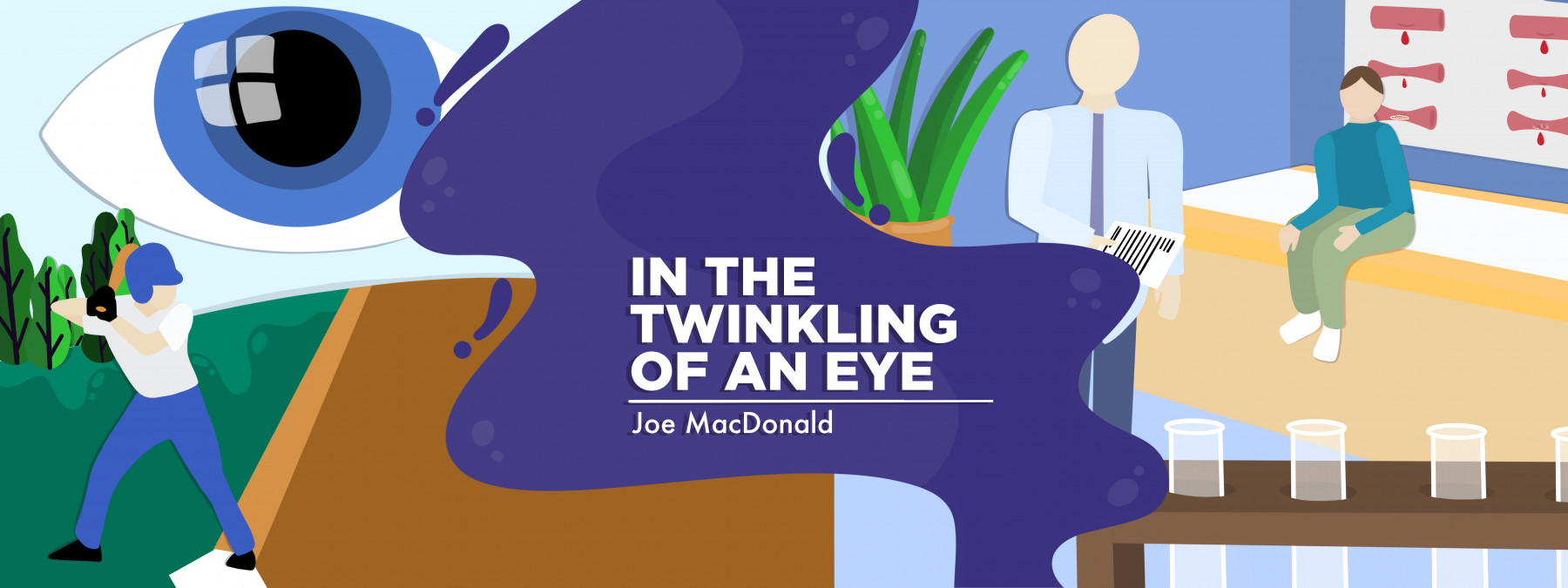Processing unpleasant emotions amid difficult caregiving situations
Anger can too easily arise when I have nothing left in my tank
Written by |

Picture this: I’ve finally settled down for some peace and quiet with my wife. I’m holding a nice glass of wine, and she’s sitting in her favorite rocking chair. Our two boys have found refuge in their bedrooms, and all seems right in the world. I turn to Cazandra and say, “I’m grateful we can rest this evening. I’m exhausted and feel like I have nothing more to give.”
No sooner have I finished my sentence than we hear a noise from my youngest son Caeleb’s room. What began as a whimper turns into all-out crying, and we rush to check on him. When we arrive, he looks at both of us and says the words that cut me like a knife: “My knee feels grumpy. It hurts really bad!”
Cazandra holds him while I run to grab the necessary supplies for an infusion: a tourniquet, Band-Aids, a few alcohol swabs, and his factor VIII, a clotting agent that helps control bleeding episodes caused by his severe hemophilia.
At this point, I want to scream and give up. The thought of needing to go to the hospital feels like too much to handle. My exhaustion keeps getting the best of me as my inner dialogue screams, “I NEED A BREAK!”
The phrase “I can’t handle this” runs through my mind, making me feel like a failure as a parent. I grow angry as I search for any reason to hold someone accountable for this horrible turn of events. But despite the protestations ringing in my head, I continue to gather everything my son needs.
Learning to give myself grace
In the years since that incident, I’ve learned that being unable to fix a situation triggers in me a surge of anger. That anger eventually morphs into sorrow and shame as I try to process the unwelcome thoughts and feelings I experienced when my back was against the wall. I feel horrible when I can’t check myself back in after losing self-control. I’ll think irrational thoughts like, “As Caeleb’s dad, I should be able to solve any problem for my son.” I give in to the most unpleasant emotion I face: hopelessness.
All of these thoughts occur within seconds. The good news is that, while I can’t change the past, I can chart my way to a better future. The most important gift given to me by sage people became my mantra: “Step away when you’re angry, Joe. You are not a horrible person, you’re just frustrated.”
When I quiet the noise in my mind and hear those two short and simple sentences, I realize that the negative thoughts that take up space in my head lack truth. I take a moment to breathe, and my mind settles down and offers me a way back to reality. This realization equips me to treat my son when hemophilia rears its ugly head.
The scene I described at the beginning of this column ended on a happy note. The factor VIII worked, and pain medications helped return my son to a comfortable position. I sat back down on the couch, and my wife resumed sitting in her favorite chair. I thought about how the night had unfolded, my feelings of exhaustion, and how I process unpleasant emotions during times of high stress. I talked to Cazandra about how awful I felt for getting angry because my son was in pain.
She reaffirmed what others had said to me previously, and the word “grace” kept coming up. Although I’m a pastor, I realized that night that I often fail to offer myself mercy when difficult situations arise. I experience negative feelings and hold myself hostage to self-loathing.
Cazandra and I continued our conversation. I had a glass of wine to celebrate our victory over hemophilia, and gave thanks that we could stay at home instead of going to an uncomfortable hospital.
Note: Hemophilia News Today is strictly a news and information website about the disease. It does not provide medical advice, diagnosis, or treatment. This content is not intended to be a substitute for professional medical advice, diagnosis, or treatment. Always seek the advice of your physician or another qualified health provider with any questions you may have regarding a medical condition. Never disregard professional medical advice or delay in seeking it because of something you have read on this website. The opinions expressed in this column are not those of Hemophilia News Today or its parent company, Bionews, and are intended to spark discussion about issues pertaining to hemophilia.



Leave a comment
Fill in the required fields to post. Your email address will not be published.